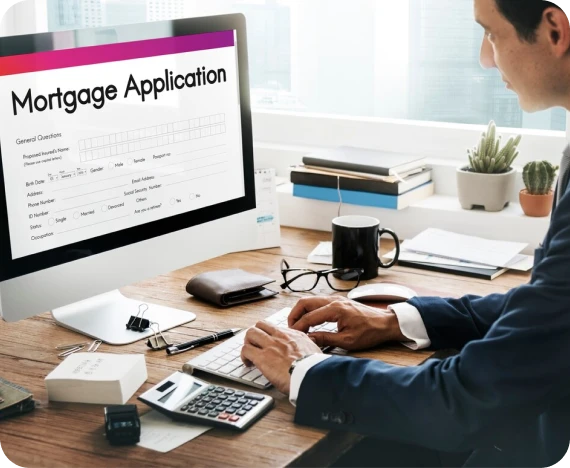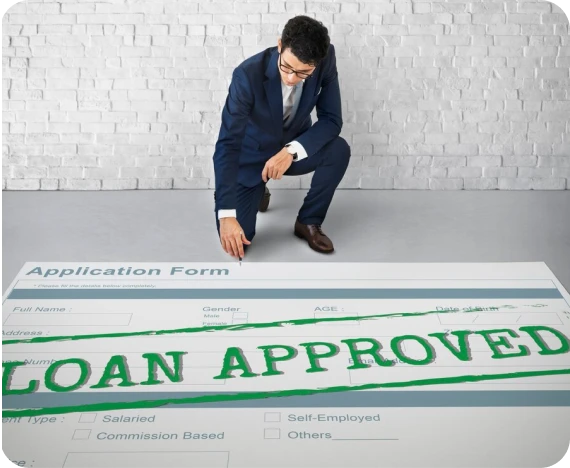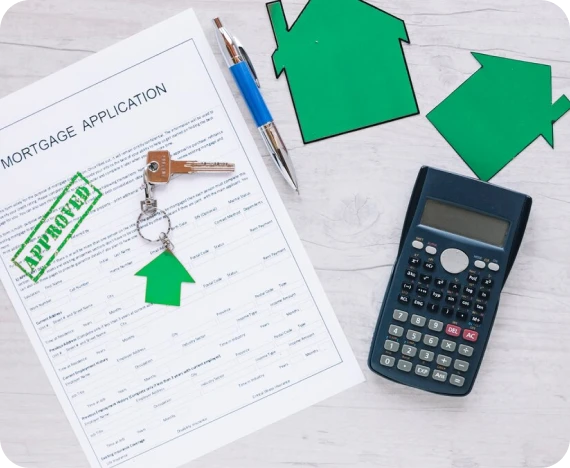Loan Process
Find Out How Much You Can Borrow

📌 Pre-Qualification vs. Pre-Approval
🔹 Pre-Qualification: A quick estimate of how much you can borrow—great for getting an idea of your budget.
🔹 Pre-Approval: A more detailed process that verifies income, credit, and assets, giving you stronger buying power when negotiating with sellers.
✅ Advantages of Getting Pre-Approved
✔ Look for homes within your price range
✔ Gain stronger negotiating power with sellers
✔ Speed up the loan closing process
More on Pre-Qualification
LTV and Debt-to-Income Ratios
FICO™ Credit Score
FICO™ Credit Scores are widely used by almost all types of lenders in their credit decision. It is a quantified measure of creditworthiness of an individual, which is derived from mathematical models developed by Fair Isaac and Company in San Rafael, California. FICO™ scores reflect credit risk of the individual in comparison with that of general population. It is based on a number of factors including past payment history, total amount of borrowing, length of credit history, search for new credit, and type of credit established. When you begin shopping around for a new credit card or a loan, every time a lender runs your credit report it adversely effects your credit score. It is, therefore, advisable that you authorize the lender/broker to run your credit report only after you have chosen to apply for a loan through them.
Self Employed Borrowers
Self employed individuals often find that there are greater hurdles to borrowing for them than an employed person. For many conventional lenders the problem with lending to the self employed person is documenting an applicant’s income. Applicants with jobs can provide lenders with pay stubs, and lenders can verify the information through their employer. In the absence of such verifiable employment records, lenders rely on income tax returns, which they typically require for 2 years.
Source of Down Payment
Lenders expect borrowers to come up with sufficient cash for the down payment and other fees payable by the borrower at the time of funding the loan. Generally, down payment requirements are made with funds the borrowers have saved. If a borrower does not have the required down payment they may receive “gift funds” from an acceptable donor with a signed letter stating that the gifted funds do not have to be paid back.
Choose the Right Loan Program
🏠 Fixed-Rate Mortgage (FRM)
- Best for buyers planning to stay 7+ years
- Provides a consistent monthly payment
Protects against future interest rate increases
📉 Adjustable-Rate Mortgage (ARM)
- Ideal for buyers planning to stay 5 years or less
- Offers lower starting payments
- Best if you expect your income to grow over time

Apply for a Loan
Loan Processing Begins

✔ Income & Employment Check – Ensuring you have sufficient income to cover your mortgage.
✔ Credit Check – Reviewing your credit history to assess your repayment ability.
✔ Asset Evaluation – Verifying that you have the necessary funds for your down payment & closing costs.
✔ Property Appraisal – Ensuring the home’s value meets loan requirements.
✔ Additional Documentation – Some loans may require extra paperwork before final approval.
✅ Fill out your loan application completely for a smoother process.
✅ Respond quickly to any requests for additional documents.
✅ Avoid making large purchases (cars, furniture, etc.) before your loan closes.
✅ Don’t transfer large amounts of money between bank accounts without documentation.
✅ Plan ahead if you’ll be out of town near your closing date.
Income/Employment Check
Credit Check
Asset Evaluation
Property Appraisal
Other Documentation
- Fill out your loan application completely. You may use our online forms to expedite the process.
- Respond promptly to any requests for additional documentation especially if your rate is locked or if your loan is to close by a certain date.
- Do not move money into or from your bank accounts without a paper trail. If you are receiving money from friends, family or other relatives, please prepare a gift letter and contact us.
- Do not make any major purchases until your loan is closed. Purchases cause your debts to increase and might have an adverse affect on your current application.
- Do not go out of town around your loan’s closing date. If you plan to be out of town, you may want to sign a Power of Attorney.
Close Your Loan
✔ Cashier’s check for any required down payment or closing costs (personal checks are not accepted).
✔ Proof of homeowner’s insurance and any additional required policies (e.g., flood insurance).
✔ Valid government-issued ID for identity verification.










